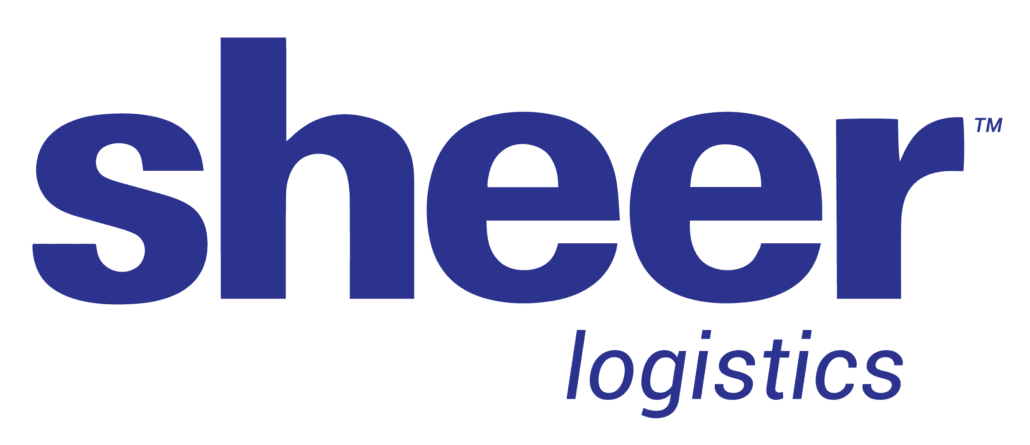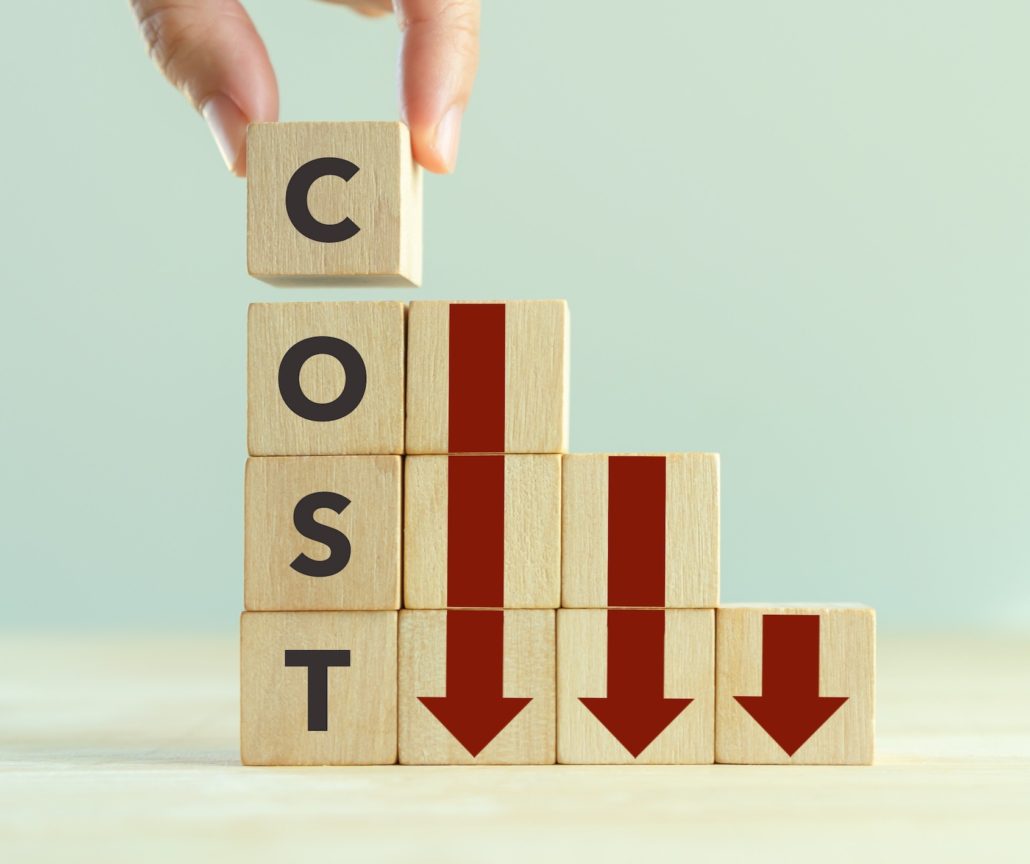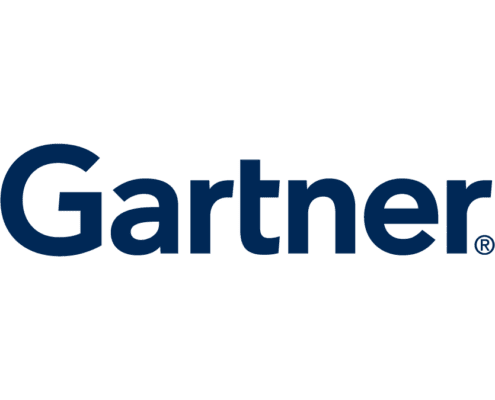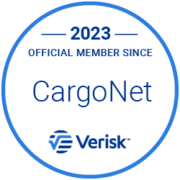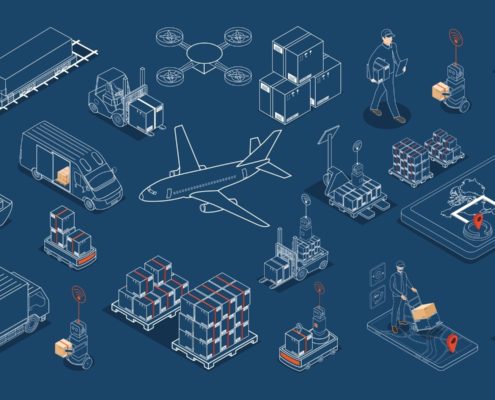
What is Logistics Cost Optimization
Logistics cost optimization is a comprehensive and holistic approach whose ultimate goal is cost reduction while maintaining- or even improving- desired service levels. However, maintaining this delicate balancing act isn’t always easy. For example, selecting a carrier based on low rates alone can result in service failures and unhappy customers. Cutting inventory levels to the bone to save on warehousing costs runs the risk of creating out of stock situations that can impact sales and brand loyalty. Negotiating more favorable rates with vendors and suppliers can save money in the short term but can create an “us vs. them” dynamic that can lead to poor service and friction when market conditions change.
To avoid these pitfalls, many shippers turn to fourth-party logistics providers (4PL) for help. By outsourcing some or all of your supply chain management needs to a 4PL, you can take advantage of their expertise and specialized technology. 4PLs can play a key role in architecting and implementing customized cost optimization programs on behalf of their shipper clients, offering a variety services and solutions including:
- Expertise: 4PLs act as expert consultants, leveraging deep industry knowledge to assess your supply chain and identify inefficiencies in your processes. Unlike other consultants that develop a recommended plan of action that is handed over to the client for implementation, some 4PLs offer executional services as well. For some shippers, working with a 4PL that has “skin in the game” as both consultant and implementor provides added assurance that the consultant’s recommendations have real-world applicability to their specific supply chain challenges.
- Transportation Management: Transportation is a significant cost center, and a central focus of cost optimization programs. Logistics service providers (LPS) can help you optimize your shipping costs through shipment consolidation, negotiating more favorable rates on your behalf, and logistics optimization strategies including carrier optimization, route optimization, and mode optimization.
- Warehousing Cost Optimization and Inventory Cost Optimization: LSPs can help you manage your warehouse operations to achieve optimal inventory levels, balancing carrying costs and stock availability to reduce storage costs, and implement more efficient picking, packing and distribution processes.
- Technology: Shippers have access to a wide variety of advanced logistics technology, ranging from Transportation Management Systems (TMS), Warehouse Management Systems (WMS), Real-Time Transportation Visibility Platforms (RTTVP), and more, which when integrated can be utilized to streamline operations and reduce costs.
- Sustainability: Reducing mileage through route and mode optimization not only reduces fuel costs and shipping rates, it can also meaningfully contribute to your company’s sustainability initiatives. This is a win-win scenario that your 4PL should be able to support by capturing and generating reporting for your Scope 3 transportation-related CO2e emissions.
- Data Analytics: The underlying and unifying element of all cost optimization initiatives is data, and the ability to glean actionable insights from data using demand forecasting, predictive (what will happen) and prescriptive (what to do about it) analytics. One of the key challenges faced by shippers is that their data is fragmented and resides across a variety of disparate systems ranging from their Enterprise Resource Planning (ERP) platform to their TMS, WMS, and other platforms. Advanced 4PLs can offer integration services that leverage integration middleware to connect your disparate systems, making crucial data available for reporting, analysis, and timely decision-making.
Key Components of Logistics Costs
Every link in the supply chain has associated costs. An effective logistics cost optimization program will take a comprehensive look at each of these supply chain costs to identify opportunities for cost savings:
- Transportation costs: Whichever modes of transport you employ, from truckload, less-than-truckload (LTL), intermodal, rail, air and ocean, transportation costs are typically the largest component in the overall logistics cost structure.
- Warehousing costs: Warehousing costs include not just storage fees but fees for handling goods, providing security, and, if the warehouse is owned by the shippers, the costs of labor, related warehouse equipment, the facility itself.
- Inventory carrying costs: Above and beyond the cost of warehousing goods, there is a cost for holding the inventory over time related to capital that is tied up in inventory, insurance, taxes and the risk of the goods becoming damaged or obsolete.
- Order processing costs: Includes the costs for the personnel, order management systems, and data processing related to fulfilling orders.
- Packaging Costs: Includes the costs for pallets, boxes, padding and protective materials, labeling and the personnel that perform and oversee these duties.
- Customs costs: International shipments require the payment of costs associated with customs clearance, tariffs, import duties, and taxes.
- Technology costs: Costs related to the TMS, WMS, RTTVP platform and other related logistics technology.
- Reverse logistics costs: As ecommerce continues to grow, so does the need for efficient and cost-effective reverse logistics operations, including handling, restocking, recycling and disposal of unwanted product.
- Administrative costs: General and administrative expenses such as salaries, office supplies, and IT systems related to logistics management.
How Can Logistics Costs Be Reduced?
There are several strategies you can employ to reduce and optimize your logistics costs.
Develop Goals
First, develop the goals for your cost optimization initiatives, so you have clear objectives that stakeholders from across your organization can embrace and align with, and clear measures of success. Benchmark your costs against competitors or industry standards to ensure you are setting realistic and achievable goals and KPIs.
Perform Audits
It’s critical to regularly audit all aspects of your transportation, warehousing, and inventory costs and management processes to measure your performance against your established metrics and progress toward your goals.
Eliminate Errors
As your supply chain grows in size and complexity, so do the opportunities for costly errors. These errors include inventory understocking and overstocking, inefficient transportation routes and warehousing processes, data inaccuracies and lack of visibility, lack of integration of key systems, and lack of automation.
Automate Processes
Leveraging logistics technology, such as a TMS or WMS, to automate logistics functions reduces human error related to data entry, order processing, and inventory management. Not only does automation reduce or eliminate these errors, but it can also free up your employees so they can focus their efforts on more strategic, value-creating tasks.
Consolidate Shipments
Consolidating shipments, such as LTL shipments into full truckload and less-than-container load (LCL) shipments into full containers, is a proven method for reducing transportation and logistics costs.
Negotiate With Suppliers
Your LSP can leverage their carrier and provider network, relationships, and aggregate shipment volumes to help negotiate lower rates on transportation and warehousing.
Reduce Packaging Costs
You can optimize your packaging costs by utilizing right-sized packaging, selecting lighter-weight packaging options, reusable packaging materials, and purchasing materials in bulk.
Optimize Order Processing
Leveraging the automation capabilities of a fully-integrated TMS or WMS can reduce costs by increasing order velocity while minimizing errors.
How Sheer Can Help in Optimizing Logistics Costs
As an integrated Logistics Services Provider, Sheer Logistics can help you optimize your logistics costs in a number of ways. We offer strategic multimodal capacity solutions that can help connect you with the right carriers at the right price while maintaining your desired service levels. Our expert team can create customized freight consolidation programs that help you optimize overall costs and enhance efficiencies. Our 4PL/Managed Servies team can orchestrate your entire supply chain by leveraging our expert team, proprietary technology, and proven processes. To learn more, please contact us.
